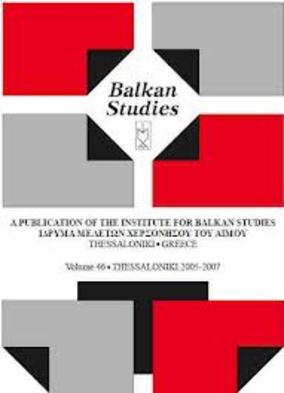Traditional friends and occasional claimants : Serbian claims in Macedonia between the wars
Part of : Balkan studies : biannual publication of the Institute for Balkan Studies ; Vol.36, No.1, 1995, pages 103-116
Issue:
Pages:
103-116
Section Title:
Articles
Author:
Abstract:
During the 1920s Greek-Serbian relations were seriously injured.The reason was the Politis-Kalfov Protocol, signed in September 1924by Greece and Bulgaria, according to which all Slavonic-speakers inGreece were termed “Bulgarians”. As a result, Belgrade denounced theGreek-Serbian Treaty of Alliance of 1913 and tried to win over the Slavonic-speakers of Greek Macedonia. The Serbian diplomatic counterattacksoon bore fruit. In late 1924 ninety-two families and one individualSlavonic-speakers emigrated from Greece to Serbia. In addition,in 1925, several inhabitants from the Greek villages Perdikkas andAsvestopetra signed a letter addressed to the League of Nations declaringthat they were ethnic Serbians and demanding minority rights such asschools and churches. However, later developments made clear that suchinitiatives in Greek Macedonia were due to villagers’ economic malaiserather than to their ethnic allegiance.
Subject:
Subject (LC):
Keywords:
Σέρβοι στη Μακεδονία του Μεσοπολέμου
Notes:
This study is part of a Ph.D. thesis being written for the Aristotle University ofThessaloniki, titled “Μεταναστεύσεις Σλαβοφώνων από τη Μακεδονία και τη ΔυτικήΘράκη, 1913-1930”. I should like to extend sincere thanks to the Museum of the MacedonianStruggle for financially assisting my studies.




